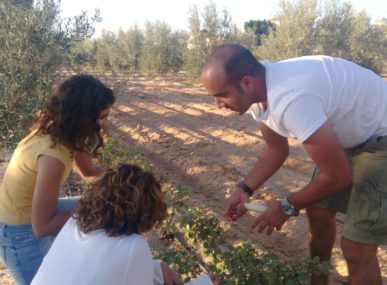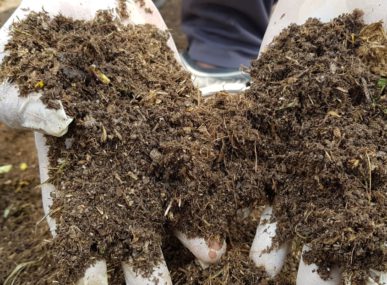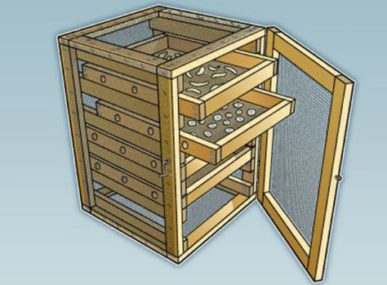The National Oil Office states that Tunisia has 1,750 oil mills, 7 factories to extract residual oil, and 40 bottling plants though there are less than ten processing units of the olive industry by-products such as leaves, olive pomace that consists of olive pulp, skin, stone and water, and olive stones that could be used for combustion, animal feed and more. Additionally, most oil mills emit their waste in the air without any treatment which causes great hard to the soil and water in no time.
In September 2016, a Tunisian SCP National Action Plan was developed under the framework of SwitchMed in which the agri-food industry was once again, one of the two main sectors to tackle. Amongst projects included in the action plan is Sabra Olive Oil and its general manager Fayçal Bouguerra.
“Why getting rid of a resource that can be reused to increase the profitability of the company while polluting less?” wonders Bouguerra. “We wanted to improve our business model by selling by-products, which in turn would also help to increase control over the value chain and reduce negative environmental impacts. This is why we were so satisfied when we found out that we were selected by SwitchMed to do a pilot project in our facilities.”
The four-member company was chosen to be evaluated for its olive oil production. “Looking at the compliance of the company with the criteria or the Tunisian eco-label under development was another objective of the pilot,” says Magali Outters, policy expert at the Regional Activity Centre for Sustainable Consumption and Production (SCP/RAC).
From his end, Bouguerra adds: “We are one of the first organic oil mills in Tunisia to use nearly all of the by-products. As example, the pomace is sold to factories that make secondary extraction of olive oil at 50 dinars per ton. The leaves, which constitute 11.7% of the total quantity of olives we produce, are given for free to the farmers of the region to feed the cattle.”
Learn more about Sabra Olive Oil through their website or Facebook page.


